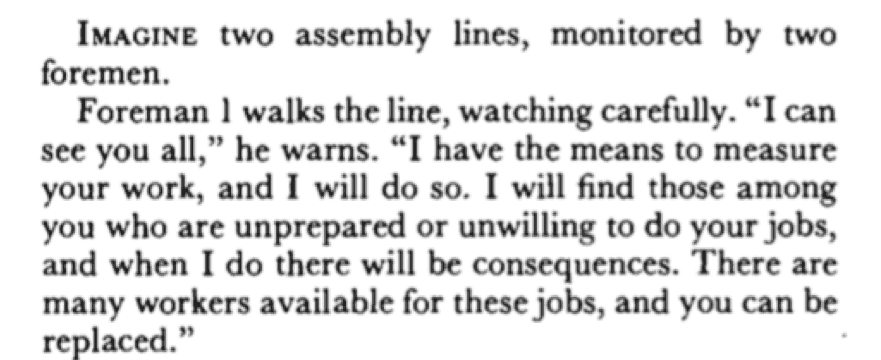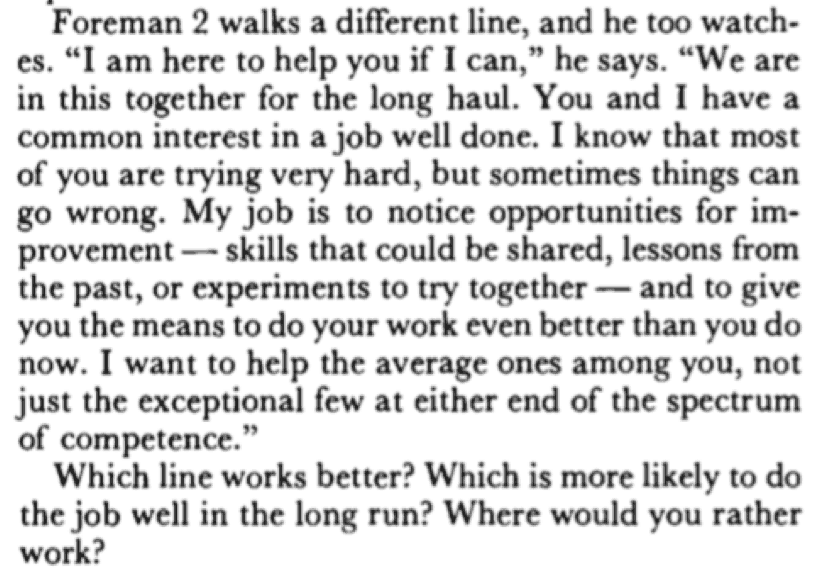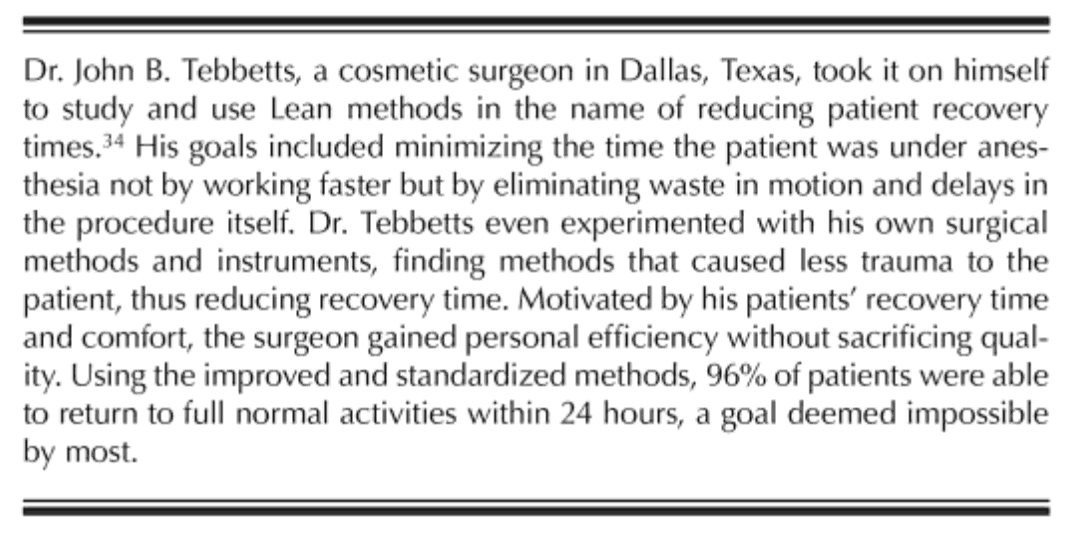Back in 2006, I wrote my first blog post about the unfortunate use of “assembly line” to mean “bad quality.” The context there was healthcare people complaining about Lean as being a pathway to “assembly line medicine.”
Not all assembly lines are the same. Having worked in manufacturing and healthcare, I can confidently say that. I'd also say that Lean is not about turning a hospital into an “assembly line.” Lean is about helping a hospital be the best hospital it can be.
As I also blogged about before, Dr. Don Berwick, a leader in the healthcare quality movement, wrote a 1989 article in the New England Journal of Medicine that compared two factories… a bad factory and a good factory. The good factory had a culture that we'd want to emulate in healthcare.
Berwick's “Assembly Line 1” (forgive his outdated gender language):

Berwick's “Assembly Line 2”:

I'm a bit more sensitive than most, I guess, about people looking down on manufacturing as if it's easy or simplistic.
So, I get irritated when I see journalists writing about dreadful healthcare situations, making an analogy to assembly lines. The lazy journalistic assumption seems to be that all assembly lines are awful workplaces that deliver bad quality. That couldn't be further from the truth!
This Week's News Story
Yesterday, I saw a front-page USA Today story about horrible, dirty private plastic surgery practices that harmed or killed patients.
Part of the introduction to the story says:
“Nearly a dozen miles from the iconic beaches of South Florida, the four convicted felons ran facilities that became assembly lines for patients from across the country seeking the latest body sculpting procedures at discount prices.
And at those businesses, at least 13 women have died after surgeries. Nearly a dozen others were hospitalized with critical injuries, including punctured internal organs.”
Again, I feel like that's an unfair and unnecessary cheap shot against manufacturing.
Some plastic surgery centers were accused of conditions that wouldn't be accepted in a good factory with a Lean culture:
“The state health department was alerted to the casualties. Government inspectors cited the clinics for serious violations, including dirty operating rooms and sales agents with no medical licenses determining the appropriate surgeries for patients.”
The best factories have floors that “you can eat off of” (as many people say), even though you might not actually go that. I've heard people from manufacturing encourage better cleanliness by saying things like, “We should be as clean and as organized as an operating room.”
Well, if it's true that not all assembly lines are dirty, we could also say not all operating rooms are clean or organized. I've seen plenty of disorganized operating rooms (even in Japan!).
The focus should be on the problems that these surgical centers present. There's no reason to drag manufacturing into the discussion.
The USA Today article raises all sorts of important questions:
- Why is there such an apparent lack of regulation?
- Why aren't patients better protected against unqualified doctors and bad surgical centers?
- Why aren't doctors holding each other to a higher professional standard?
Does this sound like a recipe for good quality?
“By paying doctors strictly on commission and offering cut-rate prices, the clinics often operate with packed waiting rooms and busy surgical suites, and at times leave patients to fend for themselves after procedures.”
The article focuses a lot on the question of why convicted felons are allowed to own or manage surgical centers. I'd also raise questions about poor processes, a lack of supervision, and a lack of regulation. This private, for-profit side of plastic surgery seems like legalized assault, not medicine.
Can't Generalize About Plastic Surgery, Either
Are all assembly lines bad? No. Are all plastic surgeons bad? Of course not.
I've become friends with a diligent and ethical cosmetic surgeon in Dallas who has used Lean methods to improve his own work as a surgeon, his surgical team's work, and the outcomes for patients.
Reducing waste through videotaping and studying his own work has led to better productivity and better results for patients. Less time under anesthesia and less internal bleeding means faster recovery, less pain, and better results.
Here is a journal article that Dr. John Tebbetts wrote (be warned, there are before and after photos that might not be safe for work).
Here is an excerpt from my book Lean Hospitals:

Let's stop generalizing — not all plastic surgeons are quacks or butchers and not all assembly lines are dirty places that produce poor quality or deadly products. Oh… and are all journalists lazy? Of course not.
End of rant.
Please scroll down (or click) to post a comment. Connect with me on LinkedIn.
Let’s work together to build a culture of continuous improvement and psychological safety. If you're a leader looking to create lasting change—not just projects—I help organizations:
- Engage people at all levels in sustainable improvement
- Shift from fear of mistakes to learning from them
- Apply Lean thinking in practical, people-centered ways
Interested in coaching or a keynote talk? Let’s start a conversation.








![When Was the Last Time a Leader Around You Admitted They Were Wrong? [Poll]](https://www.leanblog.org/wp-content/uploads/2025/07/Lean-Blog-Post-Cover-Image-2025-07-01T212509.843-100x75.jpg)

LinkedIn Discussion: